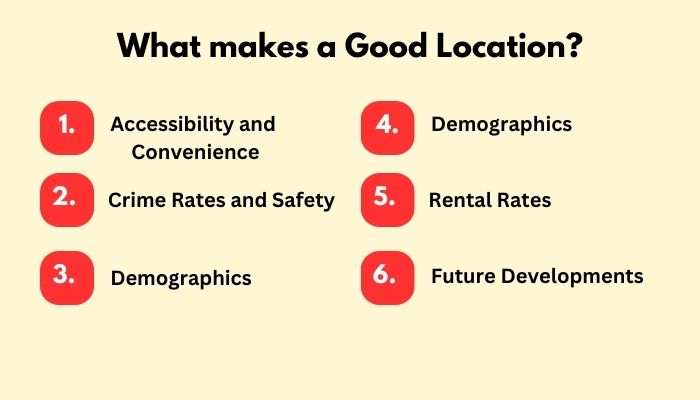There’s no such thing as “sure” money in the world of investing. However, smart investments in the right rental properties is about as close as you can get for an investment that has a reasonable upside. With that being said, you can’t be foolish. Not all rental properties are created equal, and the smartest real estate investors go through great lengths to make sure they’re putting their time and financial resources into the right ones.
Contents
The Importance of Building the Right Investment Portfolio
Building a portfolio of rental properties is a great way to build wealth. However, like any investment category, diversification is extremely important. This means you need to spread your resources across multiple properties in order to avoid the risk of any one bad investment eating away at your resources.
When it comes to mutual funds and stocks, one bad investment is pretty easy to get rid of. Stock portfolios are extremely liquid, and you can typically dump a bad stock within a few hours. The same can’t be said of a bad rental property, which can be a challenge for a property owner looking to offload an underperforming rental unit.
The liquidation timeline on a rental property is typically several months. (At a minimum, we’re talking probably 30-40 days.) That means you can’t back out of a bad real estate investment as quickly or easily as you can other traditional investments. That is, in part, why it’s so important to get a rental property investment right from the start. A property manager can help streamline this process, ensuring your investments remain profitable.
Another reason to be smart about the types of properties you invest in: A bad rental property investment ties up your funds and can actually lose you money via negative cash flow – something that isn’t possible with a lot of other investments. If monthly rent amount is not covering expenses, your losses can add up quickly, making it crucial to price your rental listing competitively and attract reliable tenants.
All of that to say this – make sure you know what you’re looking for. And on the flip side, know what to avoid. After all, not all landlords are successful, and a prospective landlord must carefully assess each investment before committing.
6 Red Flags to Avoid
As you search for rental properties to invest in, there are several major red flags (or deal-killers) that you should be aware of. Here are a few of the biggest ones:
-
Overpriced Property in Declining Neighborhood
There are two things you certainly don’t want out of an investment property:
- Overpriced
- Declining neighborhood
But do you know what’s worse than a property that exhibits one of these characteristics? An investment property that’s overpriced and in a declining neighborhood. That’s the worst of both worlds – and a recipe for financial disaster.
Location is the most important consideration in a rental property. It’s why a tiny condo in New York City can rent for $4,000 per month, while a 2,000-square foot home in small town Mississippi might rent for $900 per month. Location, location, location.

When searching for viable investment properties, make sure you’re looking in areas that are trending in the right direction. Properties in declining neighborhoods can be difficult to rent out. And if the area continues to deteriorate, your property value could plummet (making it difficult to exit the investment later on).
In addition to avoiding properties in declining neighborhoods, definitely don’t overpay for a property in an area you aren’t sure about. It’s easy to let your emotions seep into the investment process, but they have no place here. You have to be as objective as you possibly can.
-
Unrealistic Rent Projections
When evaluating rental properties as potential investments, you need to keep realistic expectations about how much you’ll actually be able to charge. The property owner who is selling the house might toss out a high number as a selling point, but it’s up to you to vet that number and run your own (realistic) calculations.
The first step is to understand what the property is currently renting for. If it’s currently an owner-occupied home, then study the comps in the market. Don’t assume that you can sprinkle some magic pixie dust on the property after you buy it and suddenly increase rents by 25 to 50 percent.
Always base your decisions on realistic, market-driven data. Avoid overly optimistic projections, which are a dangerous sign that you’re hoping the deal works. Hope is a recipe for disaster in the world of real estate investing.
-
Lots of Deferred Maintenance
Deferred maintenance is a term we use in the industry to refer to necessary repairs or upkeep that have been postponed by the current property owner. When you’re looking at a rental property, be wary of signs of neglect. Properties with extensive deferred maintenance can quickly become money pits, eating away at your profits.
Some common signs of deferred maintenance include peeling paint, a roof that’s in disrepair, outdated electrical systems, plumbing issues, and broken windows. These problems can be expensive to fix, and if the previous owner neglected them, there could be other hidden issues waiting to be discovered.
During the inspection process, pay close attention to the condition of the property. If it seems like there are a lot of repairs needed, or if the property has been poorly maintained, it might be a red flag that the owner is trying to offload a problem property. Always factor in the cost of repairs when considering a purchase, and be prepared to walk away if the property needs more work than it’s worth.
-
Tenant Issues
If there are currently tenants in the property, pay close attention to the situation. Just because a property is occupied by tenants, doesn’t necessarily mean it’s a good thing. (It can be, but it can just as easily be a problem.)
Pay attention to the turnover rate of the property. How many different tenants have lived in the property over the past 24 months? Do they pay on time? Is there a history of disputes with the landlord? Are the tenants in the property taking care of it?
You also need to consider what happens when you buy the property. What do the laws in your state say about taking ownership of a property that’s currently occupied? Can you terminate the lease? Are you legally allowed to increase rent? And if so, by how much? All of this has to be taken into consideration.
-
Cloudy Title
A clear title is basically mandatory when purchasing any property, but especially a rental property. A title that’s clouded with liens, unresolved boundary disputes, or other legal issues can be a significant red flag. If the title is not clear, you could end up facing legal battles or financial liabilities down the road.
Before purchasing a rental property, have a title search conducted by a reputable title company. This search will reveal any issues with the property’s title, such as unpaid taxes, liens, or legal disputes. If any issues are discovered, you’ll need them totally resolved before closing the deal.
-
Strange or Complicated Terms
If a deal seems overly complicated or involves a lot of unusual conditions, it’s a red flag that something might be wrong. Sellers may try to include clauses or conditions that benefit them at your expense, or they might be trying to offload a property with hidden problems.
Complicated deals often involve creative financing, seller carrybacks, or unusual contingencies. While not all creative deals are bad, they can be risky if you don’t fully understand the terms or if the seller is trying to push you into a deal that’s not in your best interest.
Always have a real estate attorney review the deal before you sign anything. If the deal seems too complicated, it might be worth walking away and finding a more straightforward investment opportunity.
Build Your Portfolio With Estate.co
Are you looking to build or grow your portfolio of rental properties? At Estate.co, we make the process of finding the right investments at the right price simple and stress-free. And in addition to helping you source good deals, we also combine our local knowledge and relationships to help our clients sell, lease, finance, and manage properties. Whether you’re a prospective landlord or a seasoned investor, we guide you through every step of the journey, ensuring you avoid common warning signs of bad investments.
Consider us your one-stop shop! We assist with tenant screening to help you find reliable renters, review lease agreements to ensure compliance and protection, and even provide insights into handling a previous tenant’s history to mitigate future risks.
Plus, we streamline the leasing process, making it easier to secure first month’s rent quickly. After all, not all landlords have the time or expertise to manage these details effectively—that’s where we come in.
Want to learn more? Please don’t hesitate to contact us today!
- How Razorbacks Football Season Influences Airbnb Demand - January 12, 2026
- Best Time of Year to List Your Home in Northwest Arkansas - January 8, 2026
- How Bikes, Blues & BBQ Weekend Affects Short-Term Rental Income - January 5, 2026
